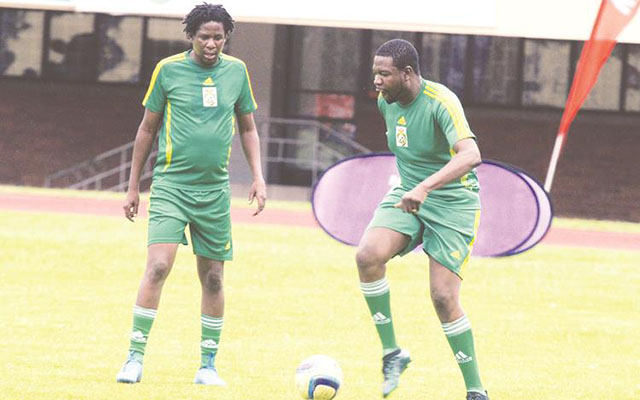Give manuscript editors enough time, and follow their advice!


It is becoming difficult to find a book in Zimbabwe which you can read seamlessly without that jarring sensation that is provoked by misplaced words, punctuation errors and mispellings. Bran Chikwava’s “Harare North” is an exception because the narrator’s bastardisation of English is intentional.
Tanaka Chidora Literature Today
In the Literature Today column of The Herald of 11 November 2016, Stanely Mushava wrote passionately concerning the downside (it also has an upside) of self-publishing. In a paragraph that lyrically captured what has been boiling in my heart for a very long time, Stanely wrote:
“When one sees a novel, for example, in low-cost packaging, with a cliché, a tasteless bouquet of platitudes and contrived plots, they are bound to miss the good old days when the tradition was more highly esteemed from workflow to reception.”
I couldn’t have said it better! I am a proofreader and editor. Both proofreading and editing demand rigorous, close and careful reading. In fact, both require that the writer stay out of gunshot’s distance of his/her script and let the proofreader and editor do their work. Professional proofreaders and editors do not work for free. They are professionals who have reputations to protect. So when they start working on a script, they want to give it their best.
But they can’t give it their best when an impatient writer is nagging them for the script a few days after submitting it for editing and proofreading. I am also a literary critic and reviewer. I receive many copies for reviewing. The bulk of the copies I have received this year are products of self-publishing.
Some have been successfully read by Mama JC and myself. Others have messed up our appetite for reading right from the cover page! So we have left them to gather dust somewhere on the bookshelf. Others have had the misfortune of being in JC’s crawling path and he has done a good job of matching their physical appearance with their technical shortcomings. This year, I received a script from a certain fellow who thinks he has been called to write a motivational message for Zimbabwe.
I perfunctorily glanced at it and concluded that it needed a generous portion of time and will on my part to exorcise it of obscurity. The chap did not have that amount of time; so he took his script elsewhere only to turn up three days later lugging two cases of books that could fill a modest bookshelf like mine. He was smiling. “Mr Chidora, may I present to you my first book!” I received a copy for “reviewing”. Unfortunately, the book found itself in JC’s path and . . . you know what he did, lol!
I think an honest reader pointed out the serious shortcomings of the book to the fellow because a few weeks later, after the euphoria of having published his first book had evaporated, he came back to me, repentant-like, and begged me to edit the “published” book in preparation for the second edition. Kkkkkkkk. I told him I needed a soft copy. He promised to send it. That was it. Now I hear the second edition is out although there is nothing “second edition” about it.
It is becoming difficult to find a book in Zimbabwe which you can read seamlessly without that jarring sensation th Brian Chikwava’s at is provoked by misplaced words, punctuation errors and misspellings. It’s really difficult. It’s either our writers are not choosing professional editors or they are not giving the editors enough time. Or it might be because the self-publishing route has made writers escape the rigorous investment of time and money that real editing and proofreading re- quire!
The solution to mediocrity is clear: as a writer you need professional and reputable editors. They will charge a fee and you must be ready to pay. They will take their time and you must wait. They will give you advice and you must heed it. That’s the solution. This is part of what it takes to be a writer. It’s not just a matter of putting pen to paper. There is more to writing.
If an editor gives you advice and you do not follow it, it’s an insult to associate their name with your work. An editor has a reputation to protect because editing is a business. But it’s not just the editor who has a reputation to protect; the writer also has a reputation to build. There are two kinds of reputation: good and bad. So as a writer you really need to invest into that process that builds a good reputation for you. The publication of a technically flawed book is, bluntly speaking, a waste of time. Once readers discover that you love wasting their time, you have lost them, sometimes for good.
A story with misplaced punctuation marks, grammatical errors and a serious disrespect for the traffic rules of words does not stand a chance of being read. It takes one bad book to soil a writer’s reputation. Sometimes it’s not just the reputation of the writer that is soiled but also the reputation of books in general. That’s the truth! In this day and age when the hard-copy reading culture is waning, bad books must not, should not, see the light of day!
Everyone has a story to tell, but how it is told, how it is packaged, is as important as the story itself. My hope is that the self-publishing alternative that our writers, established and new, are embracing is also accompanied by proper publishing processes especially editing and proofreading. I am a proponent of democratic writing space, but I am not a proponent of mediocrity in the name of democratisation.
As a parting shot, let me say these accusations of mediocrity exclude Brian Chikwava’s “Harare North”. Kkkkkkk. Readers can tell the difference between linguistic deficiency and art. “Harare North” is art through and through. The narrator’s bastardisation of English is intentional. But I can’t say the same concerning some books that I received for reviewing this year. Maybe one day, after reading every well-written book on my bookshelf, I will turn my attention to these books just to have a good laugh. But for now, let me remain silent! Good editors, please come forward. Our book industry needs you!









Comments